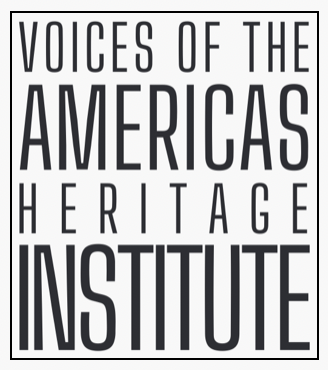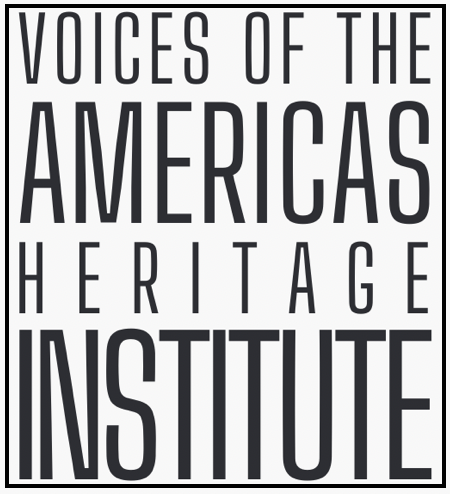
Gianluca Perdicaro, our Founder, interviewed on Michigan Post
Published on The Michigan Post – Sept. 25th, 2023
Just as endangered species face extinction from habitat loss and climate change, traditional music and its voices are dying. Growing up in a world dominated by synth music and streaming platforms, we find ourselves disconnected from our musical heritage. The soulful tunes of ancient music, our rhythmic roots, are also fading into obscurity, but so many of us are not aware of it.
Professional singer and international voice coach Gianluca Perdicaro warns we are losing a critical part of our humanity, the very threads of what makes us human.
“If we lose these historical, harmonious native voices,” says Perdicaro, “we lose those very first threads of melodies and histories woven into the giant, diverse tapestry of music that we listen to today.”
Perdicaro, a cultural entrepreneur, member of the International Council for Traditions of Music and Dance, member of Americans for the Arts, and lecturer at several universities, is so alarmed he has founded the Voices of the Americas Heritage Institute, the first and only U.S. organization dedicated to specifically preserving and promoting the rich heritage of traditional singing throughout the Americas.
In this recent interview, Perdicaro discussed the tremendous influence traditional voices and “folk” music hold to bring people together in a way that transcends our differences. These historical melodies, rooted deep within the cultural fabric of diverse societies, have a unique power to make connections between people of different backgrounds. They connect us to other cultures, enrich our understanding of humanity’s collective heritage, and inspire emotions that transcend language barriers.
The United States has long recognized music as a valuable tool in diplomacy, which involves using cultural, educational, and ideological influence to shape perceptions and win hearts and minds. In a world that remains filled with increasing contention, Perdicaro believes music and song are not a soft power but superpowers armed with an ability to bridge cultural divides, play a pivotal role in preserving cultural identities, and save precious musical treasures from imminent danger of being lost forever.
The following is my interview with Perdicaro, edited for brevity:
Rosche: You describe the loss of native voices and songs as urgent as the loss of endangered species. Can you explain why?
Perdicaro: It is absolutely my opinion that this is critically important and urgent at a national and international level. It’s crucial people understand that when you are trying to promote and make traditional music available to more audiences, you are really saving the planet in a very real way. It’s just as important as certain forms of nature.
Traditional singing and voices are based on stories. They are the stories of our ancestors, our history, and how and where our cultures developed. All over the Americas traditional communities are losing their identities, which means we are losing the foundations of our traditions.
If you imagine the tree of music, with its many branches from folk music, Americana, jazz, rock, and classical to pop music, the roots of its life and nourishment are traditional music. And traditional music is all of the music that has historic relevance and originates from the people of a specific place, community, and culture, here on planet Earth.
Rosche: Why are we in danger of losing it? What is happening in the world that causes this music not to be cataloged and saved?
Perdicaro: Imagine if we had forgotten about Mozart because no one saved his music. Can you fathom the impact that would have had on hundreds of years of the world’s music?
In America, traditional music is a mix of African reminiscences of the ancient slaves, European traditions—Irish, Scottish, English—old-time music or roots music from spirituals. There are also Portuguese traditions, and I could go on. All those music genres are absolutely a mix of other elements that we know and many that we don’t know. And that is the key point: There is a great deal of lost music in the states, and everywhere.
It is like missing your older generations of ancestors—you simply aren’t sure where your family came from and why. There is a great quote from the Amazonian indigenous Suyá that warns us: “When we stop singing, we will really be finished.”
Rosche: What are your aspirations for the Voices of the Americas Heritage Institute?
Perdicaro: By leveraging new technologies my hope is the Institute will bridge generations of artists and communities across borders, to ensure that the voices of the past continue to resonate through the voices of the future.
We are working on cutting edge programs in collaboration with esteemed universities and organizations, with a focus on music diplomacy, sustainability and music, native music preservation. A lot has been done already in the recent years, but still hundreds of music and singing traditions throughout the Americas are at risk, we are committed to playing our role in their preservation.
The Voices of the Americas Heritage Institute is joining forces with a range of other organizations to preserve ancestral voices and music, which include Florida State University Center for Music of the Americas, Universidad de los Andes, Global Ties Miami, Ballad of America, The Folk Music Academy and many traditional music professionals from different countries.

